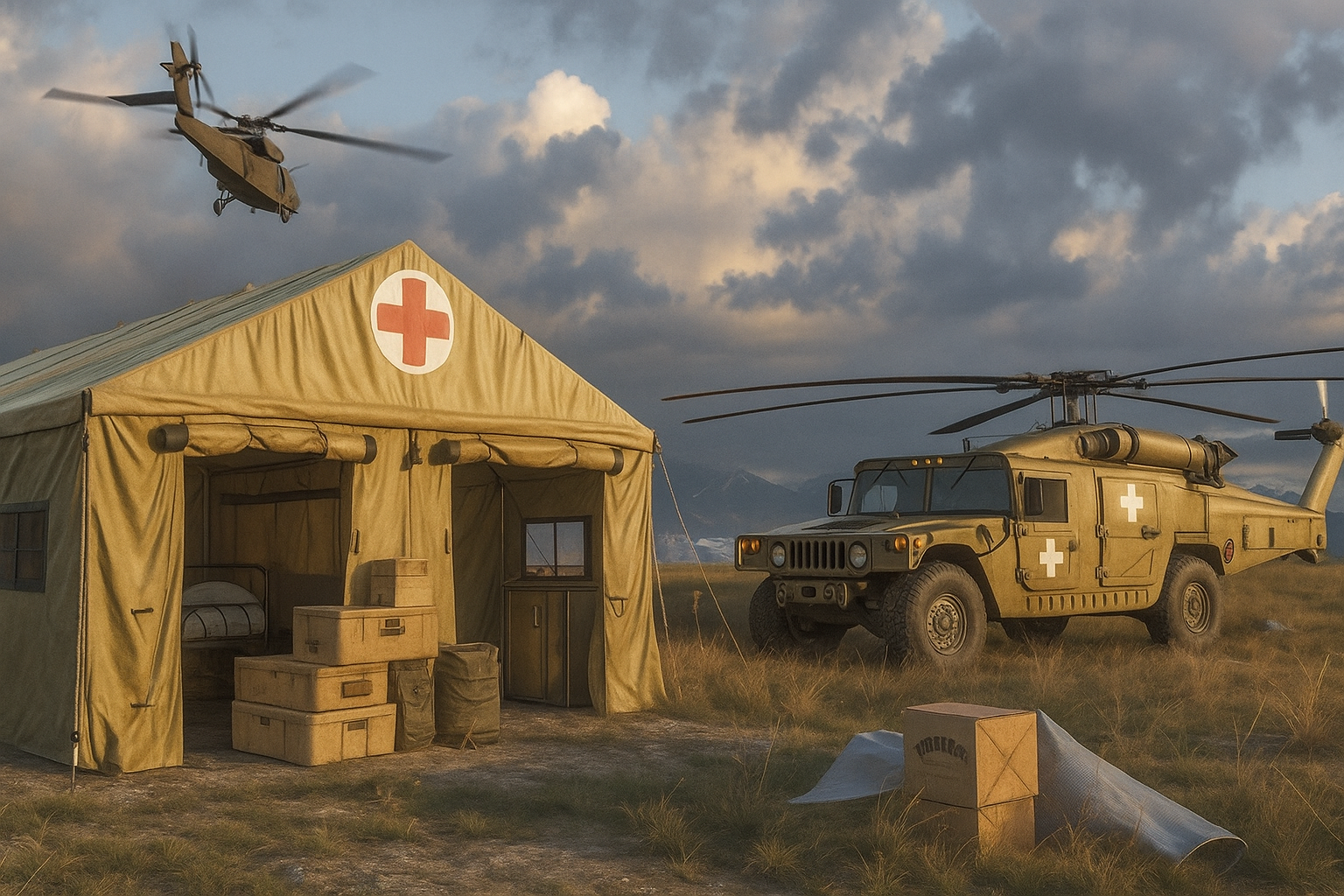How a Military ECU Enhances Operational Effectiveness

In the unforgiving theaters of modern warfare, where temperatures can plummet to bone-chilling extremes in mountainous regions or soar to life-threatening levels in desert operations, maintaining optimal environmental conditions isn't a luxury—it's a mission-critical necessity.
Military environmental control units (ECUs) have emerged as silent guardians of operational success, transforming harsh, inhospitable environments into controlled spaces where personnel can perform at peak efficiency and sensitive equipment can function reliably. These sophisticated systems represent the intersection of engineering excellence and tactical advantage, proving that environmental mastery often determines the difference between mission success and failure.
Personnel Performance and Health Protection
The human element remains the most valuable asset in any military operation, and ECUs serve as the foundation for maintaining peak human performance in extreme conditions.
When soldiers operate in environments where ambient temperatures exceed 120°F or drop below freezing, their cognitive abilities, physical endurance, and decision-making capabilities deteriorate rapidly. ECUs create stable microclimates within command centers, sleeping quarters, medical facilities, and equipment shelters, allowing personnel to maintain optimal body temperature and mental acuity.
Beyond comfort, these systems provide crucial health protection that directly translates to operational readiness. Heat-related illnesses such as heat exhaustion and heat stroke can incapacitate entire units, while extreme cold exposure leads to frostbite, hypothermia, and reduced manual dexterity. By maintaining temperatures within the optimal human performance range of 68-75°F, ECUs prevent these medical emergencies that would otherwise require evacuation, reduce force strength, and compromise mission timelines.
The controlled environment also reduces the physiological stress that accumulates over extended deployments, helping maintain long-term operational effectiveness.
Opting for manufacturers capable of producing military environmental control unit tailored to unique mission parameters is of dire importance. It ensures that forces maintain tactical advantage through superior climate management in any theater of operations.
Critical Equipment Protection and Reliability
Modern military operations depend heavily on sophisticated electronic equipment, communications systems, and precision instruments that are extremely sensitive to environmental conditions. Temperature fluctuations, humidity variations, and dust infiltration can cause catastrophic equipment failures at the most critical moments. Military ECUs provide precise climate control that protects millions of dollars worth of essential equipment, from radar systems and satellite communications to computer servers and medical devices.
The reliability factor becomes even more crucial when considering the remote nature of many military deployments. Unlike civilian applications where equipment failure might mean inconvenience, military equipment failure in hostile territory can compromise entire missions and endanger lives. ECUs maintain stable temperature and humidity levels while providing filtration systems that prevent dust and particulates from contaminating sensitive components.
This environmental protection extends equipment lifespan, reduces maintenance requirements, and most importantly, ensures that critical systems remain operational when lives depend on their function.
Enhanced Mission Duration and Sustainability
ECUs dramatically extend the duration of sustainable military operations in extreme environments. Without climate control, personnel rotation becomes necessary more frequently, logistics become more complex, and mission continuity suffers. ECUs enable extended deployments by creating livable conditions that allow the same personnel to remain effective for longer periods, reducing the need for frequent replacements and maintaining unit cohesion and expertise.
The sustainability aspect extends to resource efficiency as well. Modern military ECUs are designed with energy efficiency in mind, utilizing advanced heat pump technology, variable-speed compressors, and intelligent control systems that adapt to changing conditions while minimizing fuel consumption. This efficiency reduces the logistical burden of fuel supply, which is often one of the most challenging aspects of remote military operations.
Moreover, some units incorporate hybrid power systems that can operate on multiple fuel types or integrate with renewable energy sources, further enhancing operational independence.
Tactical Advantages and Strategic Benefits
The tactical advantages provided by military ECUs extend far beyond basic comfort and equipment protection. Climate-controlled command centers enable commanders to maintain clear thinking and effective decision-making during extended operations.
Communication centers equipped with ECUs can operate continuously without the equipment overheating or personnel fatigue that would otherwise degrade operational capability. Meanwhile, medical facilities with proper climate control can provide advanced care that might be impossible in extreme temperatures, potentially saving lives and returning personnel to duty more quickly.
From a strategic perspective, ECUs provide force multiplication effects that enhance overall military capability. For one, they can be deployed to a wider range of geographic locations and climate conditions. Also, these units can maintain operations during extreme weather events that might otherwise force tactical withdrawal or reduced effectiveness. This expanded operational envelope provides commanders with more options and greater strategic reach.
Conclusion
As global conflicts increasingly occur in extreme environments and rely on sophisticated technology, the role of ECUs will only grow in importance. The investment in these systems pays dividends not just in comfort and convenience, but in mission success, personnel safety, and strategic advantage. In the complex calculus of modern warfare, environmental control often proves to be the decisive factor that separates successful operations from costly failures.
(Disclaimer: Devdiscourse's journalists were not involved in the production of this article. The facts and opinions appearing in the article do not reflect the views of Devdiscourse and Devdiscourse does not claim any responsibility for the same.)










